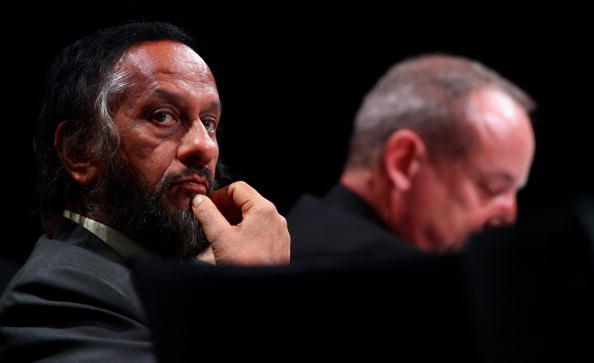Life continues to get tougher for the former head of the United Nations’ Intergovernmental Panel on Climate Change (IPCC), Rajendra Pachauri.
Pachauri was removed from his job as director-general of India’s premier energy think tank, The Energy and Resources Institute (TERI), which he had led for 34 years.
Although TERI is not a household name in the United States, the organization is “very big in India,” says Myron Ebell, director of the Center for Energy and Environment at the Competitive Enterprise Institute.
Downfall after Nobel
Pachauri’s pinnacle of achievement came in 2007 when the IPCC was awarded the Nobel Peace Prize and Pachauri gave the acceptance speech on behalf of the organization.
Just three years later, Pachauri’s star began to fall when it was found the IPCC made unsupported claims in 2007 that Himalayan glaciers were melting rapidly and could disappear entirely by 2035. The Indian government investigated the IPCC’s glacier claim, commissioning a paper by the former deputy director-general of the Geological Survey of India, Vijay Kumar Raina.
Although some glaciers in the Himalayas were retreating, Raina found it was “nothing out of the ordinary” and that there was “[n]othing to suggest as some have said that they will disappear.”
Rather than admitting the IPCC’s error, Pachauri took the challenge to the IPCC’s findings as a personal attack.
“They can’t attack the science so they attack the chairman,” said Pachauri to The Guardian. “But they won’t sink me. I am the unsinkable Molly Brown. In fact, I will float much higher.”
Pachauri’s reign at the IPCC came to an ignoble end in early 2015, when he was forced to resign amid allegations he had stalked a 29-year-old female research analyst at TERI. She filed a police complaint accusing Pachauri of assault and criminal intimidation.
The charges resulted in an investigation by the Indian judiciary, which barred Pachauri from returning to work at TERI. An internal TERI investigation of Pachauri concluded he had “harassed the employee and recommended action against [Pachauri].”
Action was delayed when a Delhi court ruled on July 17, 2015, Pachauri could return to work at TERI despite Delhi police charging him with “influencing witnesses.” Women’s rights advocates erupted in protests against the court’s decision.
Less than a week later, the governing council of TERI announced it was replacing Pachauri.
Though Pachauri is now out at both the IPCC and TERI, his impact lingers, Ebell says.
“Dr. Pachauri may be gone from the IPCC and TERI, but the damage he has done to scientific integrity will persist for many years,” Ebell said. “Even worse, he scurrilously attacked the motives and credibility of anyone who got in the way of the alarmist bandwagon.”
Mark Ramsey ([email protected]) writes from Houston, Texas.
Internet Info
Vijay Kumar Raina, “Himalayan Glaciers: A State-of-Art Review of Glacial Studies, Glacial Retreat and Climate Change”: https://www.heartland.org/policy-documents/himalayan-glaciers-state-art-review-glacial-studies-glacial-retreat-and-climate-cha




